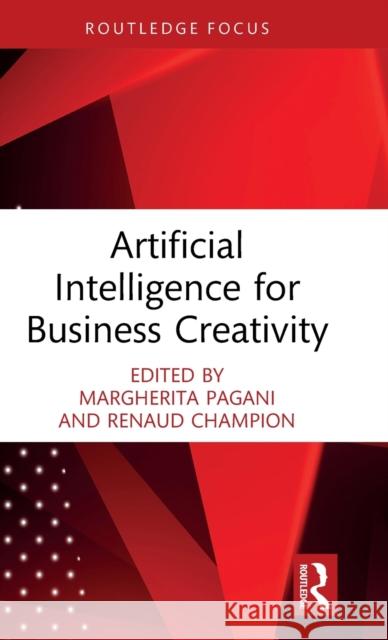Harnessing Human-Centered AI for Business Creativity » książka
Harnessing Human-Centered AI for Business Creativity
ISBN-13: 9781032262987 / Angielski
Harnessing Human-Centered AI for Business Creativity
ISBN-13: 9781032262987 / Angielski
(netto: 242,51 VAT: 5%)
Najniższa cena z 30 dni: 251,00
ok. 22 dni roboczych.
Darmowa dostawa!
AI and technological developments have begun to transform and aid creative and complex processes, as well as challenge what we believe to be creative thinking. Whilst AI can effectively augment some human capabilities, it cannot replace individual's ability to foster introspection and creativity. Creative employees enjoy challenges requiring an innovative approach, can bring fresh concepts to the table and are not afraid to challenge the status quo. That’s why companies need human skills such as creativity, even in an age of automation and AI. This book considers Human Centric Artificial Intelligence as AI which possesses an ethical dimension in addition to its technical capabilities. It explores how Human Centric AI, applied to complex and creative tasks, can influence in creative industries the human soul of creativity or stimulate and foster entrepreneurial creativity in the organizational context. The authors offer insights for managers of the future to develop a set of new critical skills which combine technical skills with new human abilities, to work in collaboration with machines. The book addresses scholars and both existing and emerging managers interested in discovering the potential of AI for business and how to boost workforce creativity.
AI and technological developments have begun to transform and aid creative and complex processes, as well as challenge what we believe to be creative thinking. Whilst AI can effectively augment some human capabilities, it cannot replace individual's ability to foster introspection and creativity. Creative employees enjoy challenges requiring an innovative approach, can bring fresh concepts to the table and are not afraid to challenge the status quo. That’s why companies need human skills such as creativity, even in an age of automation and AI.
This book considers Human Centric Artificial Intelligence as AI which possesses an ethical dimension in addition to its technical capabilities. It explores how Human Centric AI, applied to complex and creative tasks, can influence in creative industries the human soul of creativity or stimulate and foster entrepreneurial creativity in the organizational context. The authors offer insights for managers of the future to develop a set of new critical skills which combine technical skills with new human abilities, to work in collaboration with machines.
The book addresses scholars and both existing and emerging managers interested in discovering the potential of AI for business and how to boost workforce creativity.











